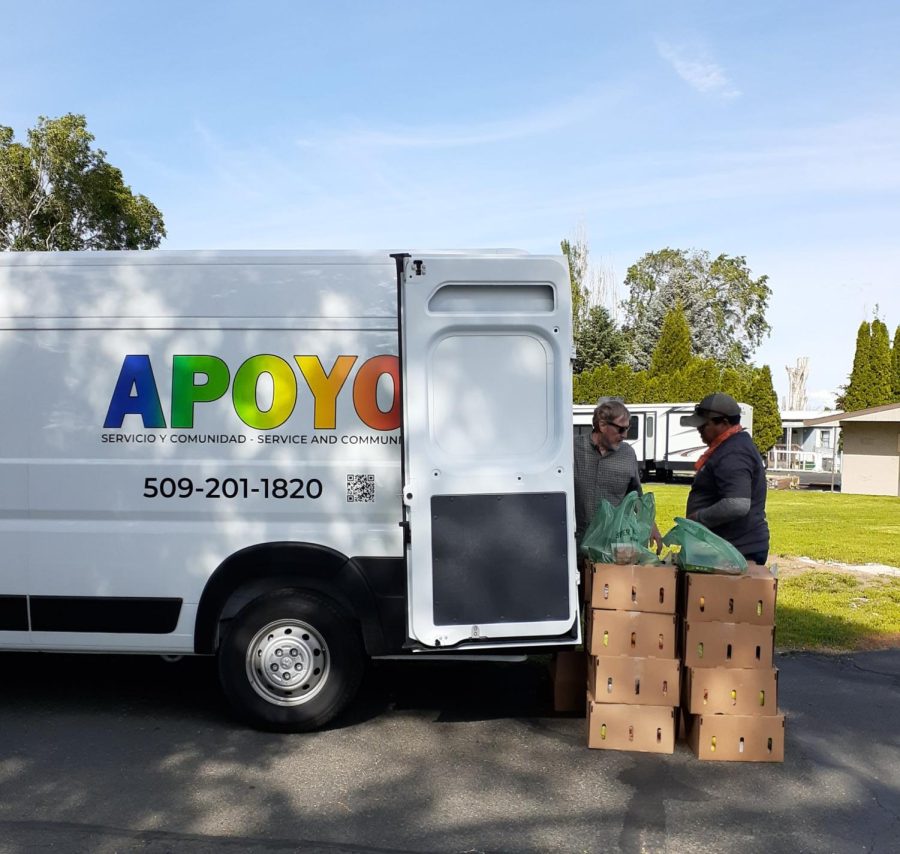CWU signs two-year contract allowing APOYO to remain on campus
APOYO will continue to stay at their CWU Campus location until 2024. Photo Courtesy of APOYO on Facebook
January 18, 2023
CWU signed a contract with Allied People Offering Year-Round Outreach (APOYO) on Oct. 18, which will allow APOYO to remain in their on-campus facility until Oct. 31, 2024.
Associate Professor and Director of the Museum of Culture and Environment, and APOYO Board member Hope Amason said when APOYO made the agreement with CWU in 2020 they were hoping to relocate to their own facility off campus when their previous agreement expired in 2022.
“We had started gathering information about what kinds of costs it would take to be able to build that new facility for APOYO. We started fundraising over the last couple of years, it kind of became apparent that because of permitting with the city and the county, as well as just raising funds, we were probably going to need a little bit more than two years,” Amason said.
APOYO’s Executive Director Stefanie Wickstrom, said APOYO is pleased to be able to stay on campus and continue their relationship with CWU.
“We’re grateful to [CWU] for providing us the space. They pay our utilities and give us a space for rent free and in exchange we provide educational opportunities; everything from volunteer work for students, to internships. We also provide food to [CWU] students,” Wickstrom said.
According to Wickstrom,the plan for APOYO is to build a community outreach center off campus so they can have a bigger space.
“We’ll still have our food pantry operations, of course, but we’ll be able to have a gathering place. A place where we can have workshops and classes, and social activities,” Wickstrom said.
APOYO began operating on the CWU campus in 1998, Wickstrom said that having a food bank within the campus and the community is important because of the economic circumstances that we are currently facing.
“From November of 2021, to November of 2022 grocery store food prices rose 12%. That’s one of the highest increases in food prices in history, and in 2023 they’re expected to rise an additional three to 4%,” Wickstrom said. “Everyone is in need of food and that need is increasing.”
Amason said having food banks in college towns, like Ellensburg, is important because the median income is lower since the majority of college students are under the poverty level.
“It’s hard for students to be able to have healthy food and having food banks and food pantries in your community is one way that people can work to make ends meet,” Amason said. “I think that APOYO is even more special in the sense of the fact that it’s a food pantry, but it’s actually more than a food pantry. That’s just a component of what APOYO is. It’s actually an entire community of people who help each other out.”

